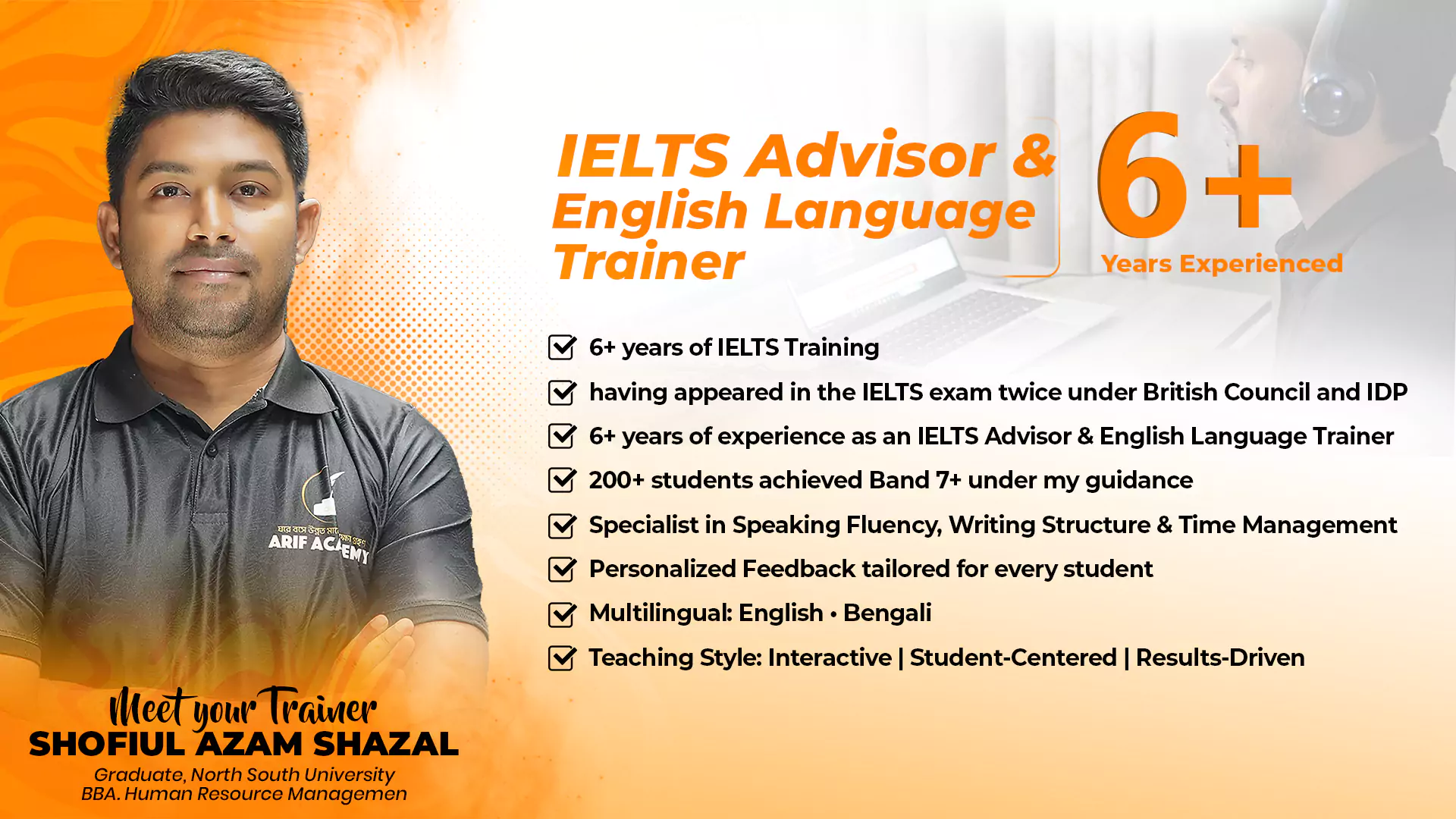IELTS Listening Tips for Exam Preparation:
To succeed in the IELTS Listening test, familiarize yourself with the format and question types. Practice listening to a variety of English accents, such as British and Australian, through podcasts, lectures, or IELTS recordings. Always read the questions before the audio starts to predict answers. Focus carefully, as recordings are played only once. Watch for distractors—speakers may change their answers mid-sentence. Spelling and grammar matter, so write clearly and within word limits. Build your vocabulary and practice under real test conditions. Use the extra 10 minutes wisely to transfer answers. Stay calm, and keep improving through regular practice.
1. Understand the Test Format
- 4 Sections with a total of 40 Questions.
- Recordings are played once only.
- Topics get progressively more challenging.
- Sections:
- Conversation in everyday context.
- Monologue in everyday context.
- Academic discussion (e.g., tutor and students).
- Academic lecture.
2. Improve Listening Skills
- Listen to a variety of Native English Accents (British, Australian, Canadian, etc.).
- Practice with podcasts, audiobooks, TED Talks, and IELTS sample recordings.
- Focus on understanding gist, details, opinions, and intentions.
3. Practice Predicting Answers
- Before the recording starts, read the questions quickly.
- Predict:
- The type of information (number, name, date, etc.).
- The context (e.g., booking, lecture, complaint).
4. Use the Time Wisely
- You get time to read questions before each section.
- Use it to underline keywords.
- After the audio, you’ll have 10 minutes to transfer your answers to the answer sheet.
5. Be Careful with Spelling and Grammar
- Spelling mistakes = wrong answer.
- Ensure subject-verb agreement where required.
- Follow word limits strictly (e.g., “NO MORE THAN TWO WORDS”).
6. Watch Out for Traps
- Speakers often correct themselves (e.g., “We’ll meet at 3—no, wait, 4 o’clock.”).
- Don’t rush to write the first thing you hear.
7. Learn Common Question Types
- Form/Note/Table completion
- Multiple choice
- Map/Diagram labeling
- Matching
- Sentence completion
Practice each type to get familiar with their structure and what to listen for.
8. Practice Under Exam Conditions
- Take full practice tests using real test timing.
- Practice with headphones to simulate the real exam.
- Review your mistakes carefully and note common errors.
9. Work on Listening for Synonyms
- IELTS often paraphrases ideas (e.g., “price” might be said as “cost”).
- Build your vocabulary and knowledge of synonyms/phrases.
10. Stay Calm and Focused
- If you miss an answer, move on. Don’t panic.
- Focus on the next question; lingering on a missed one may cost you more.






